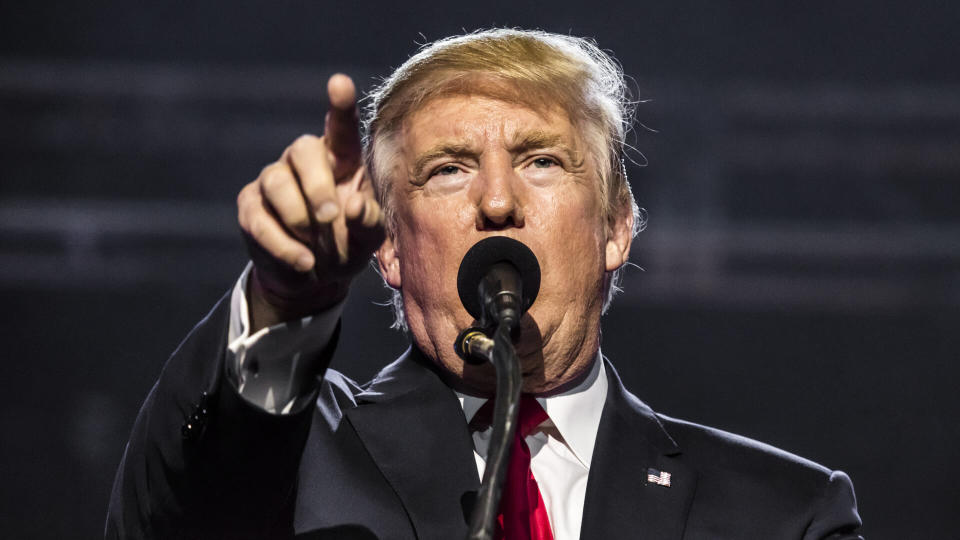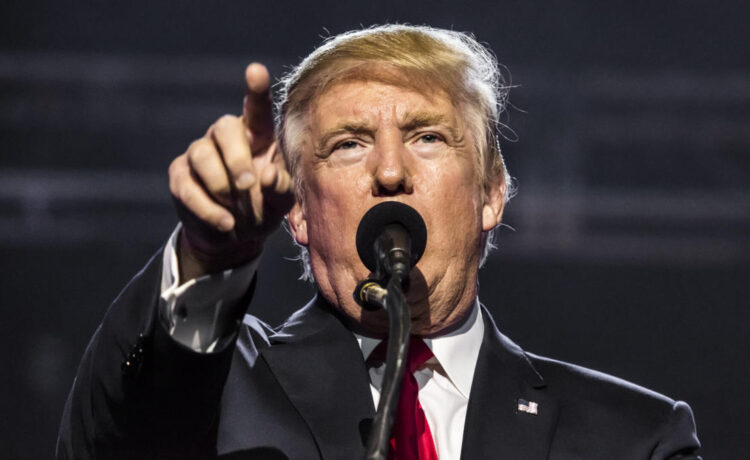
Another Donald Trump presidency might happen, and your wallet may feel it. It’s impossible to know exactly which financial policies would be imposed, but the overall impact likely would vary by income.
Also Read: I’m an Investor — I’m Making These Money Moves Immediately If Trump Wins
Learn More: 6 Subtly Genius Things All Wealthy People Do With Their Money
“I think one of the biggest insights one can use is the current speculation on the tax code in different scenarios,” said Joseph Boughan, CFP, a financial planner and president at Parkmount Financial Partners. “The Tax Cuts and Jobs Act (TCJA) is set to expire after 2025; and, depending on who gets elected, the tax implications affect people’s financial planning.”
Taxes certainly could be a major issue, but other monetary policies also likely would come into play. Here’s a look at what people in the lower-, middle- and higher-income categories might be able to expect for their finances if Trump is elected.
Earning passive income doesn’t need to be difficult. You can start this week.
Lower Income
“Trump has been keen on extending the Tax Cuts and Jobs Act, which upped the standard deduction and boosted the child tax credit,” said Ben Engel, an investment advisor at Modesto Capital. “This move could continue to help low-income earners by cutting down their taxable income and giving them more tax credits to work with.”
Additionally, he said paying for healthcare could become more challenging if Trump is elected.
“His push to roll back the Affordable Care Act (ACA) might make healthcare more expensive or less accessible for those at the lower end of the income scale,” Engel said. “And let’s not forget the potential cuts to welfare programs like SNAP and housing assistance, which could mean less support for low-income households.”
Discover More: I’m an Economist — Here’s My Prediction for the Housing Market If Trump Wins the Election
Middle Income
“For middle-income folks, the TCJA extension would likely keep tax brackets and deductions as they are, meaning they won’t see a return to the higher tax rates from before the TCJA,” Engel said. “Trump’s pro-business stance and deregulation efforts could be a boon for job growth and possibly lead to higher wages.”
While there could be some financial wins for the middle class, he said there also could be some losses.
“Changes in healthcare policy could result in steeper premiums and out-of-pocket costs, especially if protections for pre-existing conditions are scaled back,” Engel said.
Middle-wealth retirees who rely heavily on capital gains across income spectrums likely would be better off if Republicans extended the TCJA, due to the higher standard deductions, Boughan said.
“A lot of retirees that are not ultra-high net worth have no or small mortgages and little other deductions,” he said. “Concurrently, there is speculation that Democrats would possibly extend this — and the child tax credit increase piece of the TCJA — if elected, but there has been limited definitive info about how this might shape up.”
Higher Income
“High-income earners have benefited significantly from Trump’s policies, particularly with lower taxes on high incomes and capital gains,” Engel said. “This trend could continue, providing substantial tax savings for the wealthy.”
Additionally, potential changes to the estate tax could benefit those in the high-income bracket.
“Any moves to reduce or eliminate the estate tax would allow more wealth to be passed down without Uncle Sam taking a cut,” Engel said. “The deregulation wave has also been a windfall for high-income individuals — especially business owners and investors — by fostering economic growth and potentially yielding higher returns on investments.”
However, upper-income individuals living in coastal cities may realize a neutral to positive benefit if the TCJA expires as planned, Boughan said.
“These individuals are most likely to pay high state and local taxes (SALT) and may be affected little by the expiry — if they have significant deductions to declare, which include the SALT deductions that may be useful again if the TCJA does expire,” he said.
Beyond the tax code, he said there are also other issues.
“Under a Republican administration, there could be changes to healthcare subsidy programs and other quasi welfare programs, which could affect lower-income individuals,” he said. “But this did not change much under the most recent Republican administration, so it is a low probability to change this time.”
However, Boughan said, some analysts have suggested that lower regulations and corporate taxes proposed by Republicans could help stimulate the broader economy.
“[This] does affect the job market, prospects for upward mobility and could benefit many middle- and upper-income individuals who rely on the performance of corporations in the stock market for their retirement plans,” he said.
Despite this, he said it’s important to note that either administration’s overall impact on the stock market is expected to be minimal.
“In the long term, data shows the market has done comparably well under both Democratic and Republican administrations,” he said.
Finally, Boughan said Republicans have talked about imposing high international tariffs, which has caused some economists to be concerned about inflation.
“[This] does impact lower-income individuals the most,” he said.
Ultimately, he said, it remains to be seen whether this policy is a serious prospect or simply a bargaining chip to negotiate international trade. Only time will tell whether Trump will be elected and, if so, and how his agenda will personally impact your financial situation.
Editor’s note on election coverage: GOBankingRates is nonpartisan and strives to cover all aspects of the economy objectively and present balanced reports on politically focused finance stories. You can find more coverage of this topic on GOBankingRates.com.
More From GOBankingRates
This article originally appeared on GOBankingRates.com: I’m a Financial Planner: How a Trump Presidency Could Affect Your Finances Based on Your Income

















